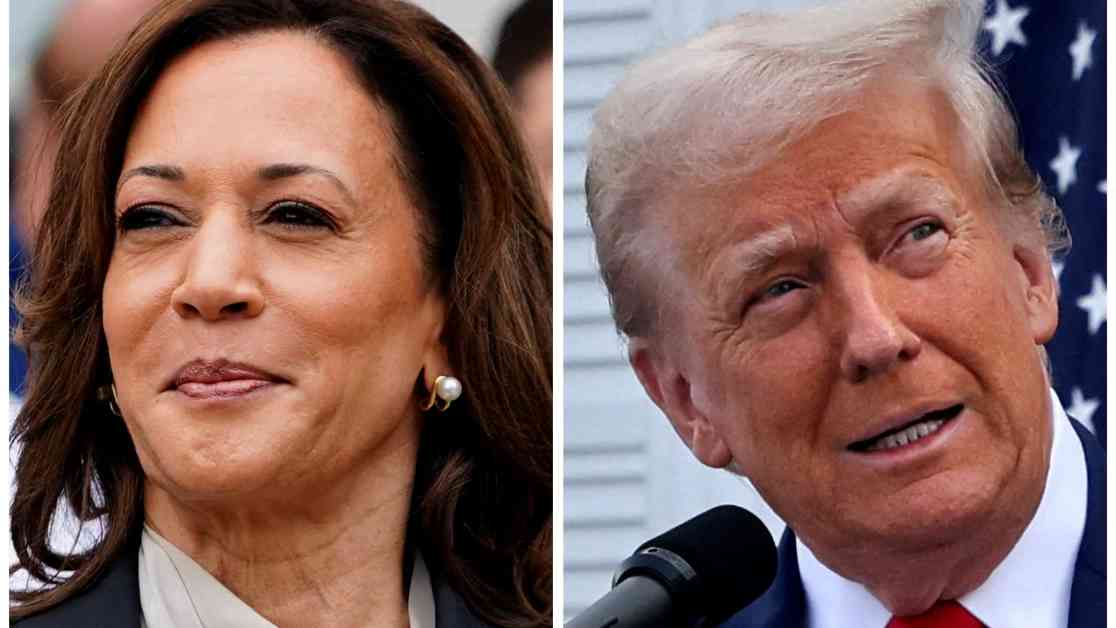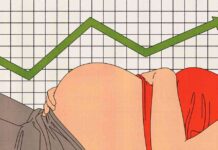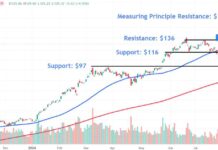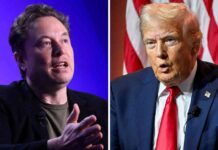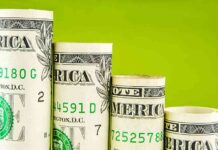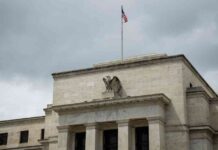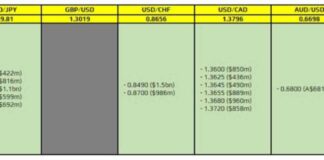Experts Predict Harris Victory in Upcoming U.S. Presidential Election
In a recent CNBC Fed Survey, Vice President Kamala Harris has emerged as the frontrunner in the 2024 U.S. presidential election, surpassing former President Donald Trump in terms of predicted victory. The survey, which involved 27 respondents including investment strategists, economists, and fund managers, revealed that 48% of participants believe Harris is the most likely candidate to win, compared to 41% who favor Trump.
This shift in sentiment marks a significant change from the previous survey conducted in late July, where 50% of respondents predicted a Trump victory and only 37% believed Harris would be elected president. The change in forecast comes after the first, and potentially only, debate between Harris and Trump, which took place a few days before the survey was conducted in mid-September.
The dynamics of the election have evolved since President Joe Biden’s withdrawal from the race and his subsequent endorsement of Harris. Prior to Biden’s exit, 48% of respondents viewed Trump as the probable winner, while 35% believed Biden would secure a second term. The remaining 17% were either unsure or did not have a clear prediction.
With less than 50 days remaining until the November 5 election, the cost of living continues to be a key concern for voters based on national polls. Harris has been actively promoting her economic platform, focusing on initiatives to support the middle class, reduce consumer costs through housing subsidies, tax credit expansions, and crackdowns on corporate pricing practices.
On the other hand, Trump has emphasized extending and enhancing his initial term’s tax cuts, implementing aggressive tariff policies on imports, and rolling back some of the Biden administration’s infrastructure investments. While 56% of respondents in the CNBC Fed Survey believe a Trump presidency would benefit the stock market, opinions are divided when it comes to the broader economy, with 44% favoring Trump and 41% supporting Harris.
Joel Naroff, president of Naroff Economics LLC, expressed concern about the potential economic impact of Trump’s proposed policies, such as broad-based tariffs and mass deportations, which could lead to inflation and economic slowdown, possibly triggering a recession.
In terms of overall national welfare, 52% of respondents believe Harris would be better for the country, while only 37% think Trump would have a more positive impact. Naroff highlighted that the candidates’ proposals primarily differ in terms of winners and losers rather than their overall economic growth implications.
The survey respondents indicated that Harris’ economic plans would be more favorable for budget deficits and trade policies, while Trump’s policies were seen as better for business regulations, inflation, job creation, and tax matters.
Election Impact on U.S. Economy and Policy Agenda
While the outcome of the presidential election is crucial, it is not the sole determinant of the U.S. economy’s health. Robert Fry, chief economist at Robert Fry Economics LLC, emphasized the importance of divided government to mitigate the negative economic effects of both Trump and Harris’ proposed policies, which could lead to increased deficits and inflation rates.
The survey respondents ranked the presidential election as the sixth most concerning risk to the U.S. economy out of eight possible factors. The top-ranked risk was identified as the Federal Reserve potentially cutting interest rates too late or by insufficient margins.
Regarding Fed independence, all participants expect Harris to uphold the Federal Reserve’s autonomy, while only 42% believe Trump would do the same. Richard Bernstein, CEO of Bernstein Advisors, highlighted the potential challenges to Fed independence under a Trump administration, noting that the Fed’s autonomy is contingent upon the established three branches of government – Legislative, Judicial, and Executive.
The Federal Reserve is anticipated to announce its first interest rate cut since March 2020 at its upcoming meeting, reflecting the ongoing economic uncertainties and challenges facing the U.S. economy.
Implications of Election Outcome on Economic Policies
The contrasting economic policies proposed by Harris and Trump have significant implications for various sectors of the economy. Harris’ focus on supporting the middle class, reducing consumer costs, and addressing corporate pricing practices could lead to a more equitable economic landscape.
In contrast, Trump’s emphasis on tax cuts, tariffs, and infrastructure adjustments may have diverse impacts on business operations, inflation levels, job growth, and tax structures. The survey results indicate a division among experts on which candidate’s policies would be more beneficial for specific economic indicators.
As the election date draws near, the economic policies and stances of the presidential candidates will continue to shape the public discourse and influence voter decisions. The outcome of the election will not only determine the country’s leadership but also set the course for economic policies and initiatives in the coming years.
